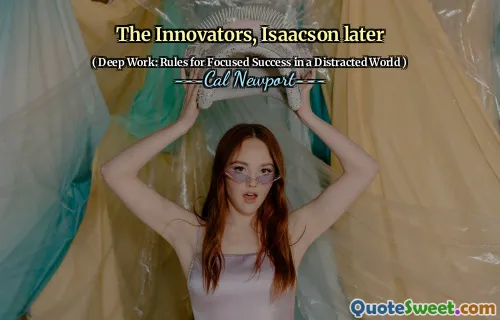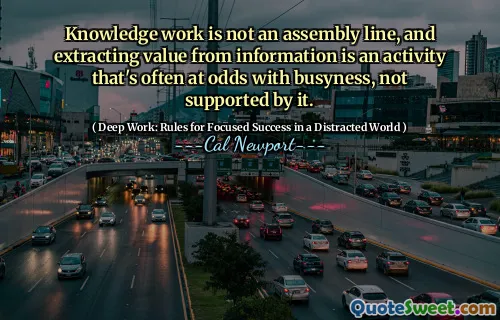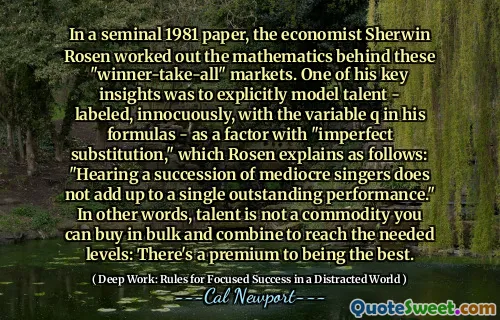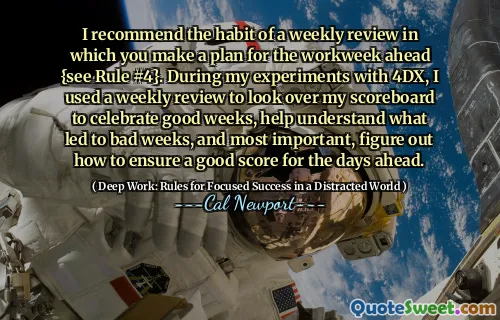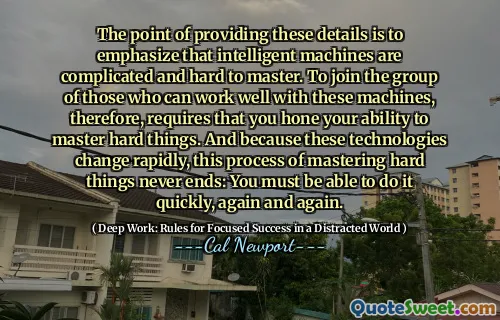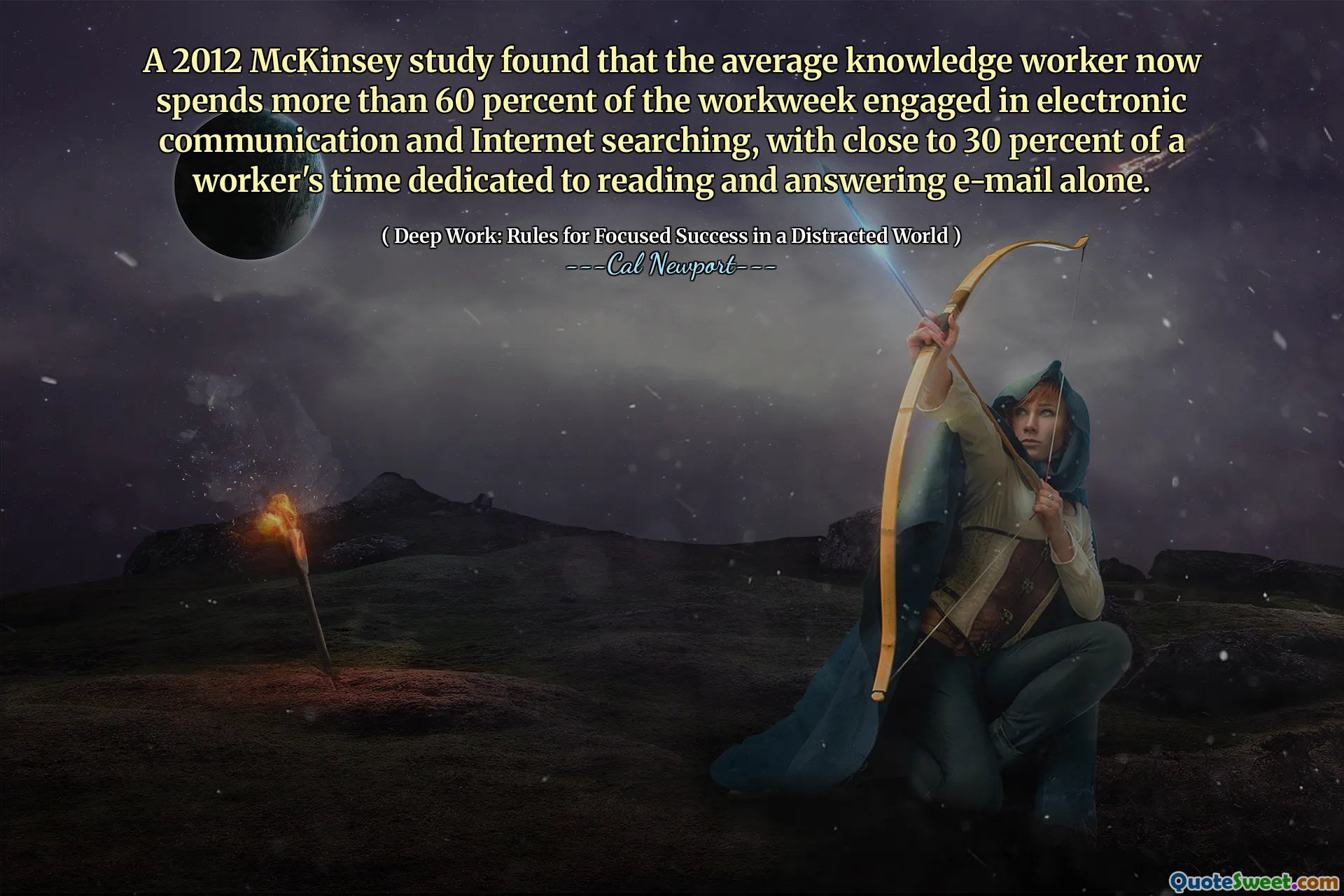
A 2012 McKinsey study found that the average knowledge worker now spends more than 60 percent of the workweek engaged in electronic communication and Internet searching, with close to 30 percent of a worker's time dedicated to reading and answering e-mail alone.
The quote highlights a profound shift in the modern workplace, emphasizing how digital communication has become an integral part of daily tasks for knowledge workers. In today's digital age, the boundaries between work and personal life are increasingly blurred, with electronic communication tools like email, instant messaging, and collaborative platforms consuming a significant portion of the workweek. This behavioral change has both positive and negative implications. On one hand, digital connectivity allows for faster information exchange, remote work flexibility, and broader collaboration opportunities. On the other hand, the time spent reading and responding to emails can be overwhelming, often leading to reduced focus on high-value tasks. This constant bombardment of messages creates a cognitive load that fragments attention, making it difficult to engage in deep, meaningful work. It also raises concerns about the effectiveness and efficiency of the modern worker, where multitasking and interruptions become the norm. Such environments may foster stress, burnout, and a surface-level engagement with work, rather than fostering sustained focus and creativity.
Reflecting on this, it suggests a need for intentional practices to manage digital communication, such as scheduled email checking and focused work sessions. Organizations and individuals alike should recognize the time drain caused by digital interruptions and seek strategies to reclaim their attention for more impactful, value-adding activities. Ultimately, understanding how our digital habits shape our productivity can inspire more mindful use of technology, aligning work practices with human cognitive capabilities. This awareness is crucial for improving not only efficiency but also overall well-being in today's increasingly connected world.
